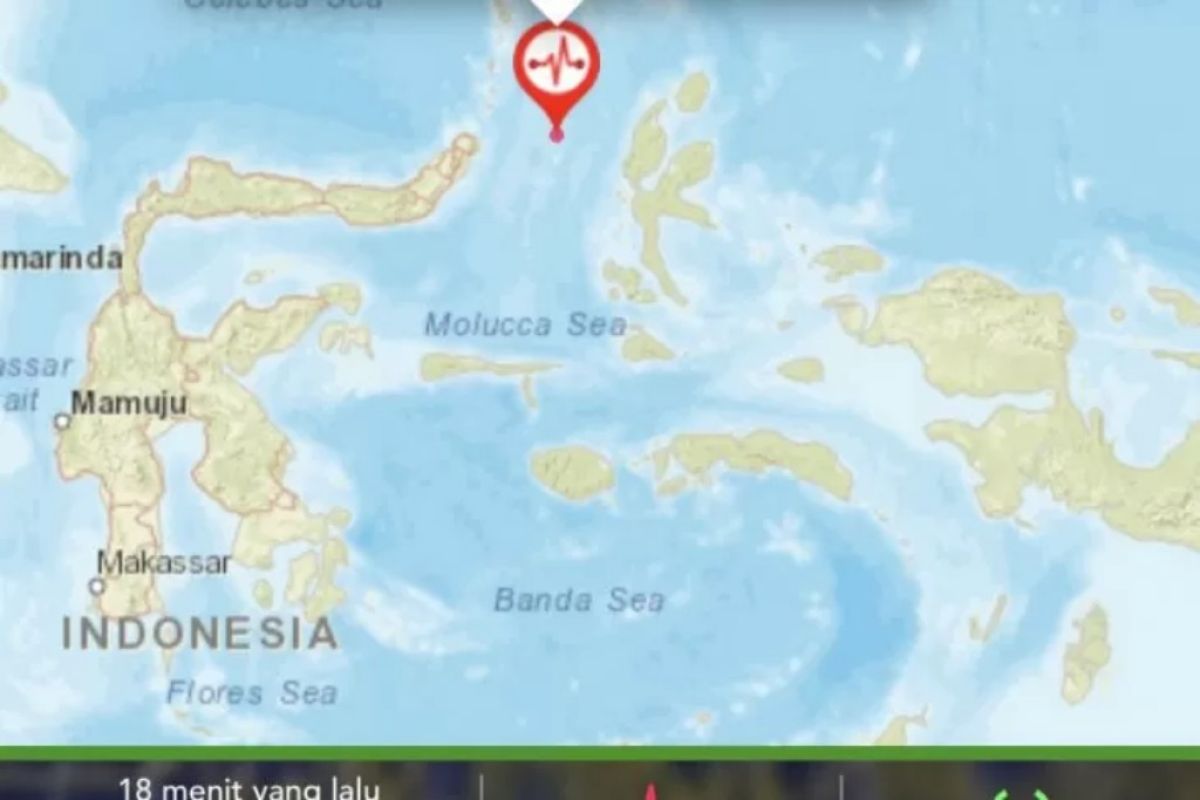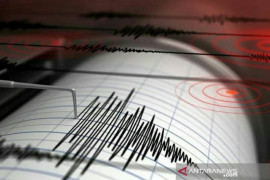Jakarta (ANTARA) - Jailolo Subdistrict in Halmahera Barat District, North Maluku Province, was rocked by three aftershocks within 30 minutes on Friday morning following the 7.1-magnitude earthquake that jolted the areas on Thursday at around 11:17 p.m. local time.
The Meteorology, Climatology, and Geophysics Agency (BMKG) revealed that the aftershocks occurred at 03:54 a.m., 04:12 a.m., and 04:37 a.m. local time but they did not potentially trigger tsunami.
The magnitude of those aftershocks was recorded at between 5.3 and 6.1 on the Richter scale while their epicenter was located around 137 kilometersnorthwest of Jailolo Subdistrict at a depth of 10 kilometers.
Regarding this strong earthquake followed by repeated aftershocks, Head of the BMKG Dwikorita Karnawati called on local residents to stay calm but vigilant to anticipate any unwanted eventuality.
Related news: 7.1-magnitude earthquake jolts North Maluku
"The aftershocks will likely occur in the aftermath of the 7.1-magnitude earthquake but local residents are expected to remain calm," she said.
The agency recorded that there had been some 28 aftershocks in the aftermath of the strong earthquake, which according to the Winangun Geophysics Station in Manado, the capital city of North Sulawesi Province, potentially triggered tsunami.
Located on the Circum-Pacific Belt, also known as the Ring of Fire, where several tectonic plates meet and cause frequent volcanic and seismic activities, Indonesia is susceptible to natural disasters, including earthquakes and volcanic eruptions.
On September 26, 2019, a 6.5-magnitude earthquake rocked Maluku Province, killing at least 38 people and wounded 27 residents in Ambon city, 90 residents in Maluku Tengah District, and 32 residents in Western Seram District.
Due to the trauma and anxiety that local residents still experience in the aftermath of this powerful earthquake, the BMKG recently cautioned Maluku Province's residents not to believe in rumors, fake news, and misleading information on a powerful earthquake and tsunami that could jolt Ambon, Masohi, and Banda.
The BMKG argued that no one could precisely predict when and where the earthquakes would occur.
Related news: Emergency response period for Maluku's recent earthquake extended
During 2018, the BMKG recorded that Indonesia had borne the impact of 11,577 earthquakes, including several causing grave casualties, with the number significantly rising than that in 2017.
The BMKG data showed that 11,577 earthquakes, with varying magnitudes and depths, hit during 2018, while just 7,172 earthquakes were recorded in 2017.
This indicates that Indonesia bore witness to a significant increase in the number of tectonic earthquakes last year.
Several earthquake-related events that had struck Indonesia last year were first of a kind to have occurred, such as the liquefaction in Palu, a tsunami that struck prior to the issuance of a tsunami warning in Palu, and the Sunda Strait Tsunami.
Related news: President stresses public alertness against natural disasters
Related news: Indonesia struck by 3,155 natural disasters during January-Nov 7, 2019
Aftershocks jolt North Maluku
Jumat, 15 November 2019 9:55 WIB

Jailolo Subdistrict in Halmahera Barat District, North Maluku, was rocked by three aftershocks within 30 minutes on Friday morning (Nov 15, 2019) following the 7.1-magnitude earthquake that jolted the areas on Thursday evening. (ANTARA/Doc. BMKG/Ant/RN)
The aftershocks will likely occur in the aftermath of the 7.1-magnitude earthquake but local residents are expected to remain calm,









